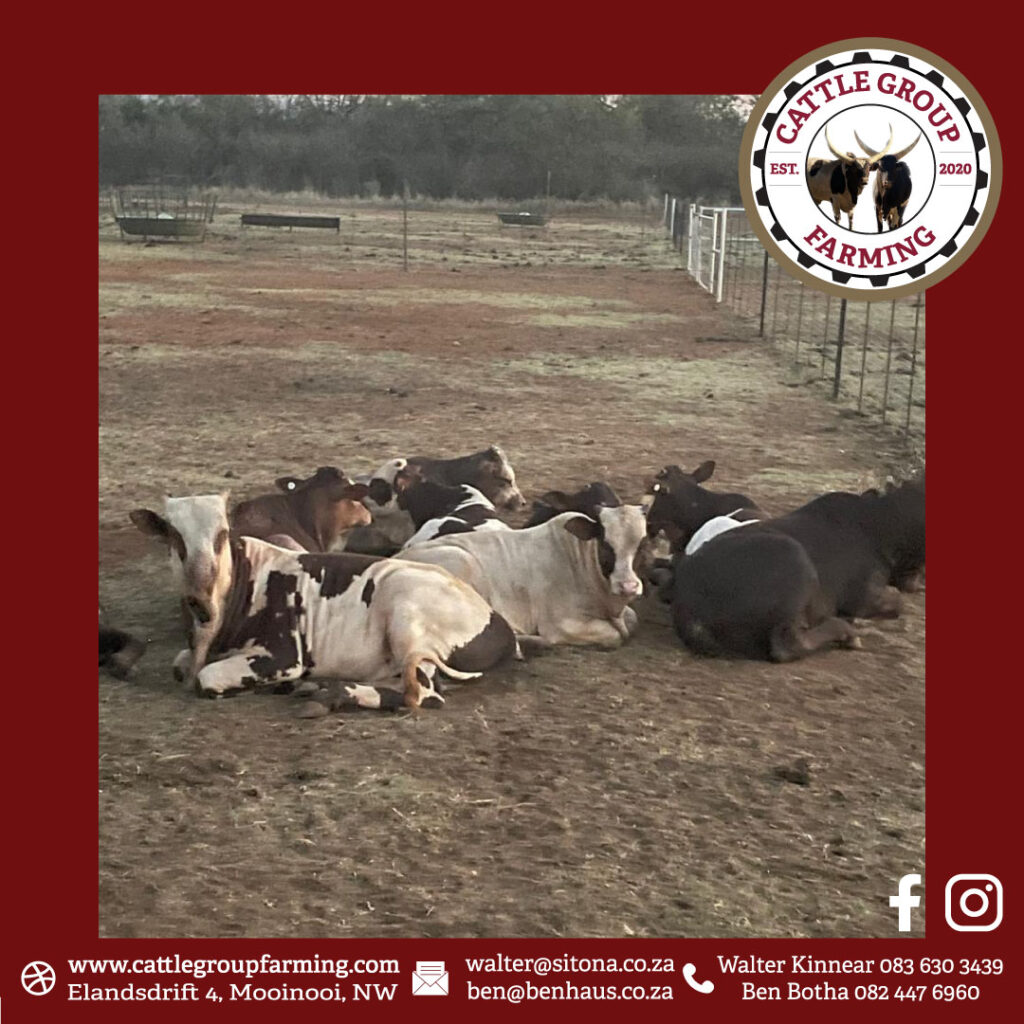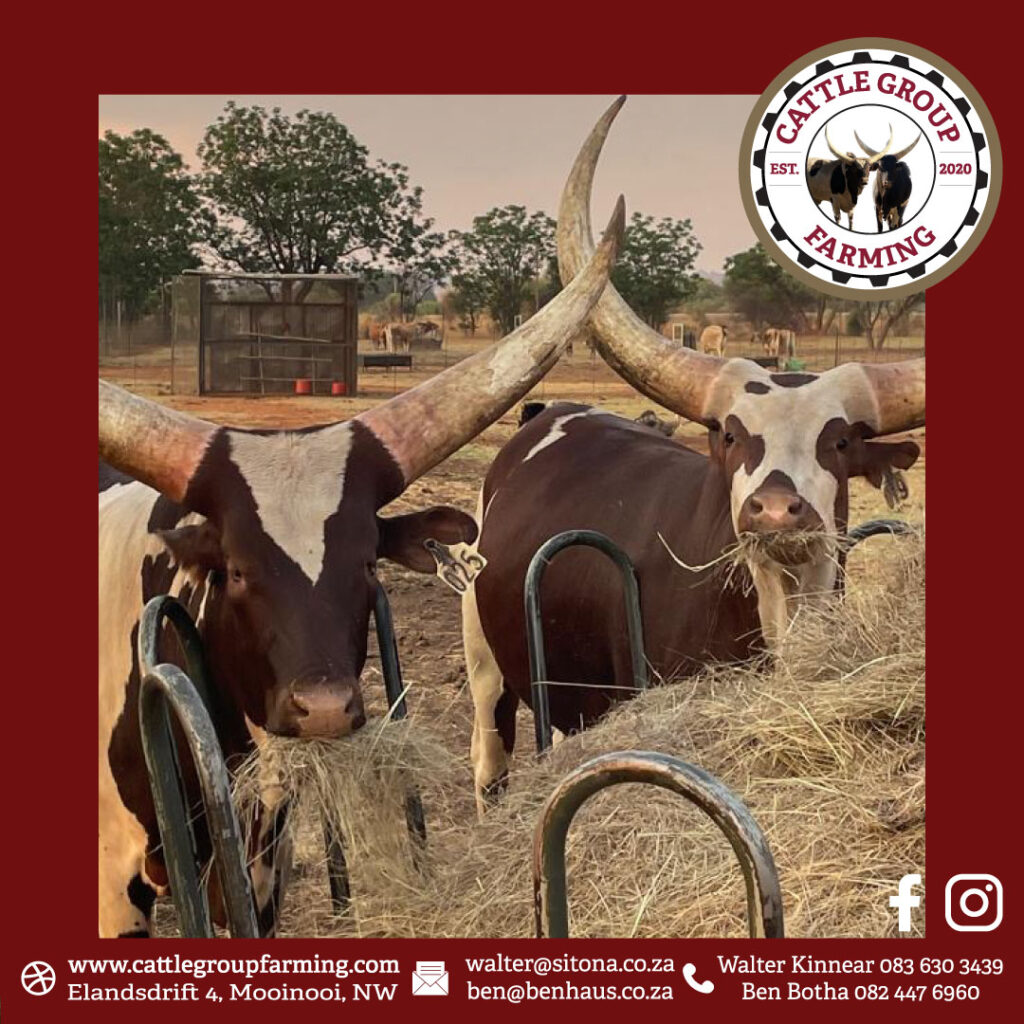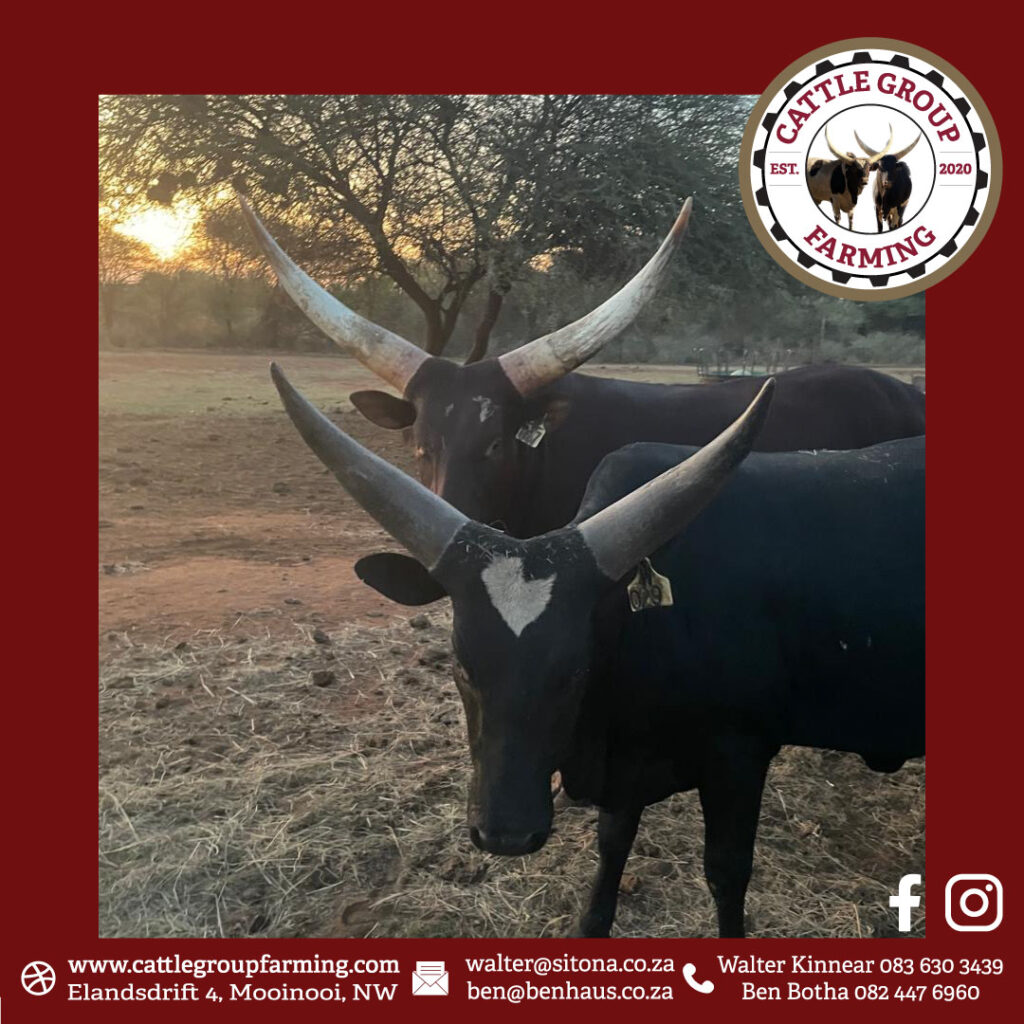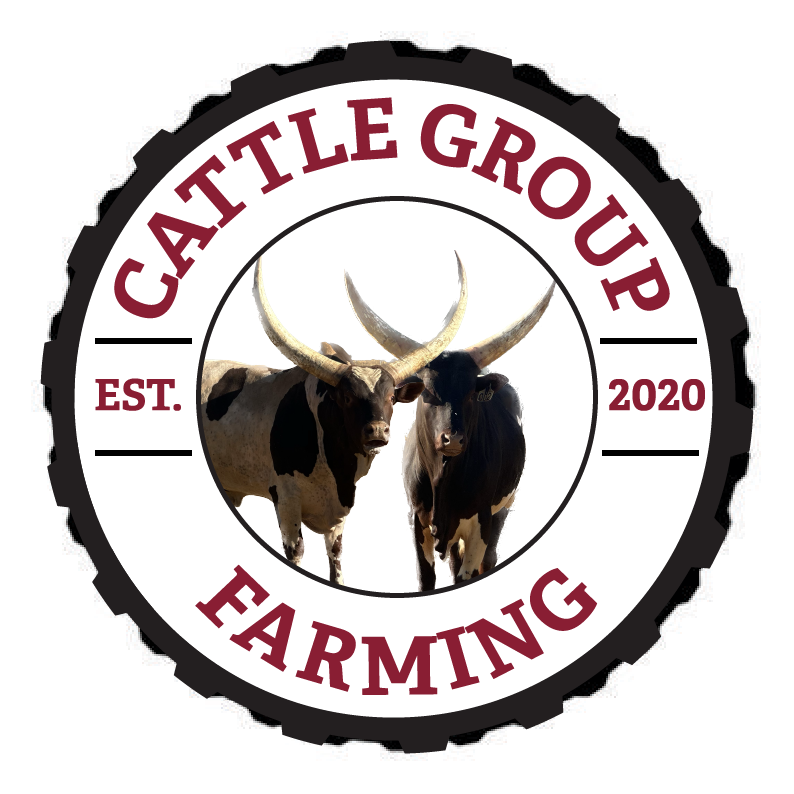Nutrition for our Ankole is of utmost importance
What do our cattle eat? A Comprehensive Guide to Nutrition at Cattle Group Farming

At Cattle Group Farming, we pride ourselves on raising healthy, strong Ankole cattle. Central to their well-being and growth is a well-balanced diet tailored to their unique digestive system. Let’s dive into what makes up their diet, how they process their food, and the essential nutrients they require.
The Ruminant Advantage
Ankole cattle, like other ruminants, have a specialized digestive system that allows them to derive nutrients from plant-based food through microbial fermentation. This process takes place in a four-part stomach comprising the rumen, reticulum, omasum, and abomasum. Micro-organisms in the rumen, reticulum, and omasum break down fibrous materials that single-stomach animals cannot digest. This microbial action produces vital nutrients such as amino acids and B-vitamins, making beef from ruminants nutrient-dense and beneficial for human consumption.
The Role of Vitamin D
Vitamin D is synthesized when sunlight interacts with animal tissue, a crucial process for cattle that spend time outdoors. However, keeping cattle indoors for extended periods can lead to vitamin D deficiency, potentially affecting their health and growth. Ensuring that our Ankole cattle have enough exposure to sunlight is vital for their well-being.
Essential Minerals for Health and Growth
Minerals play a significant role in the development and maintenance of healthy cattle. They help build bones and teeth and aid in protein and lipid functioning. Here’s how we ensure our cattle get the necessary minerals:

- Salt (Iodised Salt): Provides essential iodine but lacks other minerals.
- Trace Mineralised Salt: Contains salt with added minerals like copper, iron, cobalt, manganese, selenium, and zinc.
- Mineral Mixes: Includes major minerals such as calcium and phosphorus alongside trace minerals and some salt. These can be offered as licks or mixed into feed to ensure the cattle receive a well-rounded intake.
The specific mineral composition varies based on location and available feedstuffs, enabling us to tailor our approach to the nutritional needs of our Ankole cattle.
The Importance of Hydration
Water is as essential as food. Under normal conditions, a bovine can drink between 20ℓ and 70ℓ of water daily, influenced by factors like size, age, and weather. In the warm climate of Rustenburg, water consumption tends to be higher, making clean water access a top priority.
Balancing Protein, Energy, and Roughage
Cattle require protein, energy, fats, minerals, vitamins, and water, with the exact amounts dependent on their environment, age, and stage of growth or production. The diet also varies by season and feed availability.
High-quality legume hay such as lucerne and clover provides adequate protein and carbohydrates for growth and maintenance. However, poorer quality feeds like grain straw or rain-damaged hay may need supplementation to boost protein and energy intake.

Roughage—hay, pasture, and silage—is essential but must be managed carefully. For instance, breeding cows can maintain health on good-quality roughage alone during winter, while feedlot steers may require more grain with minimal roughage. A typical beef animal will consume up to 3kg of feed per 100kg of body weight. This means a 300kg calf will eat about 9kg of high-quality lucerne hay daily to reach an average weight of 450kg.
Buying vs. Growing Feed
The decision to buy feed or grow and mix it depends on the number of cattle being finished for slaughter. Smaller-scale operations may find it more economical to purchase mixed rations from feed suppliers.
The Role of Growth Promotants
Growth promotants, including implants and feed additives such as ionophores, can play a role in boosting feed efficiency and weight gain. While proven safe and widely used, they should be viewed as a complement to, not a substitute for, good management practices.
Conclusion
Feeding our Ankole cattle is a thoughtful process, integrating natural foraging, careful supplementation, and constant adaptation to their needs and environment. At Cattle Group Farming, we commit to maintaining the health and growth of our herd, ensuring that our practices support both the cattle’s welfare and the quality of our beef products.
Our approach is one that balances tradition, science, and local expertise, ensuring our Ankole cattle not only thrive but produce the nutrient-rich beef our customers love.
